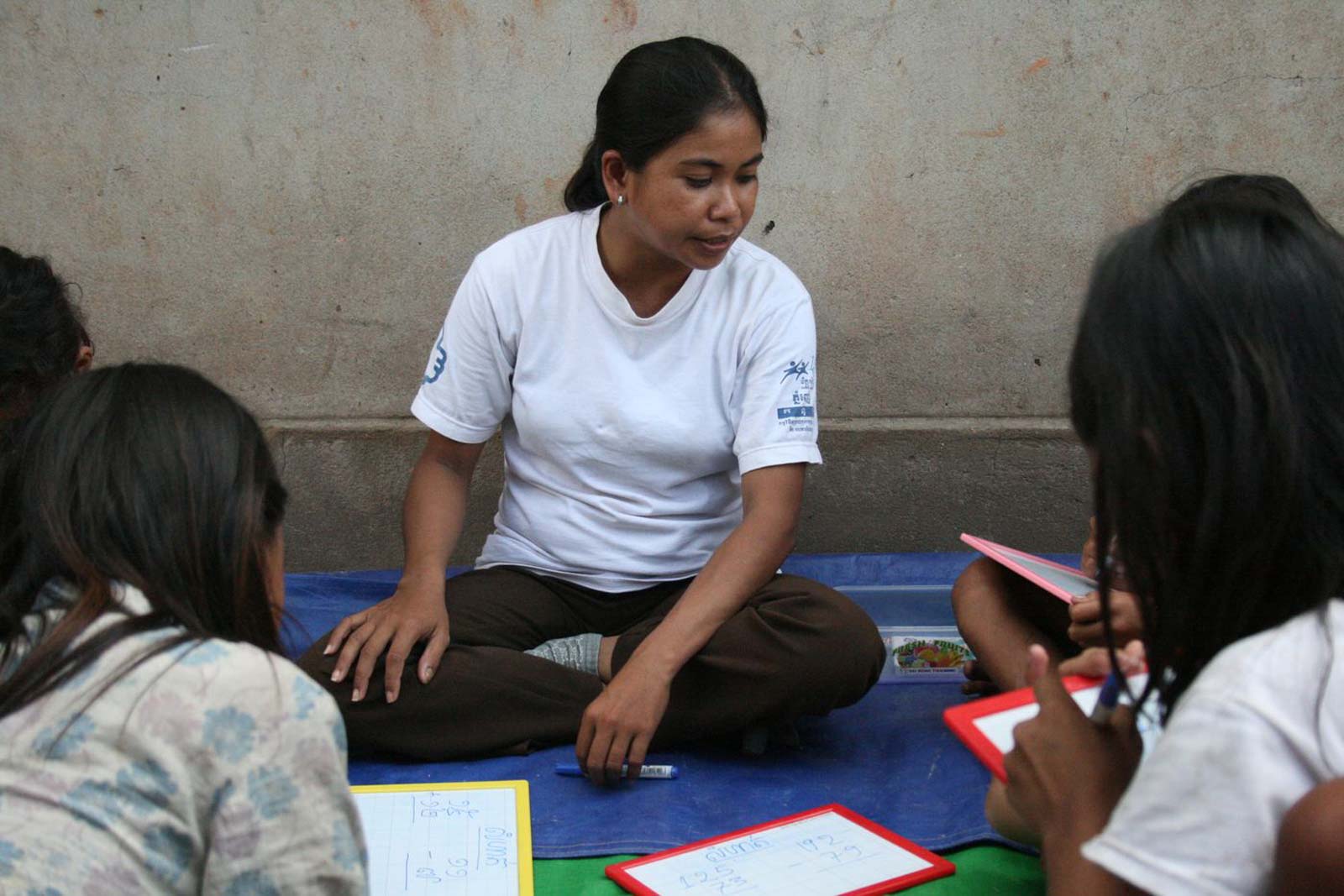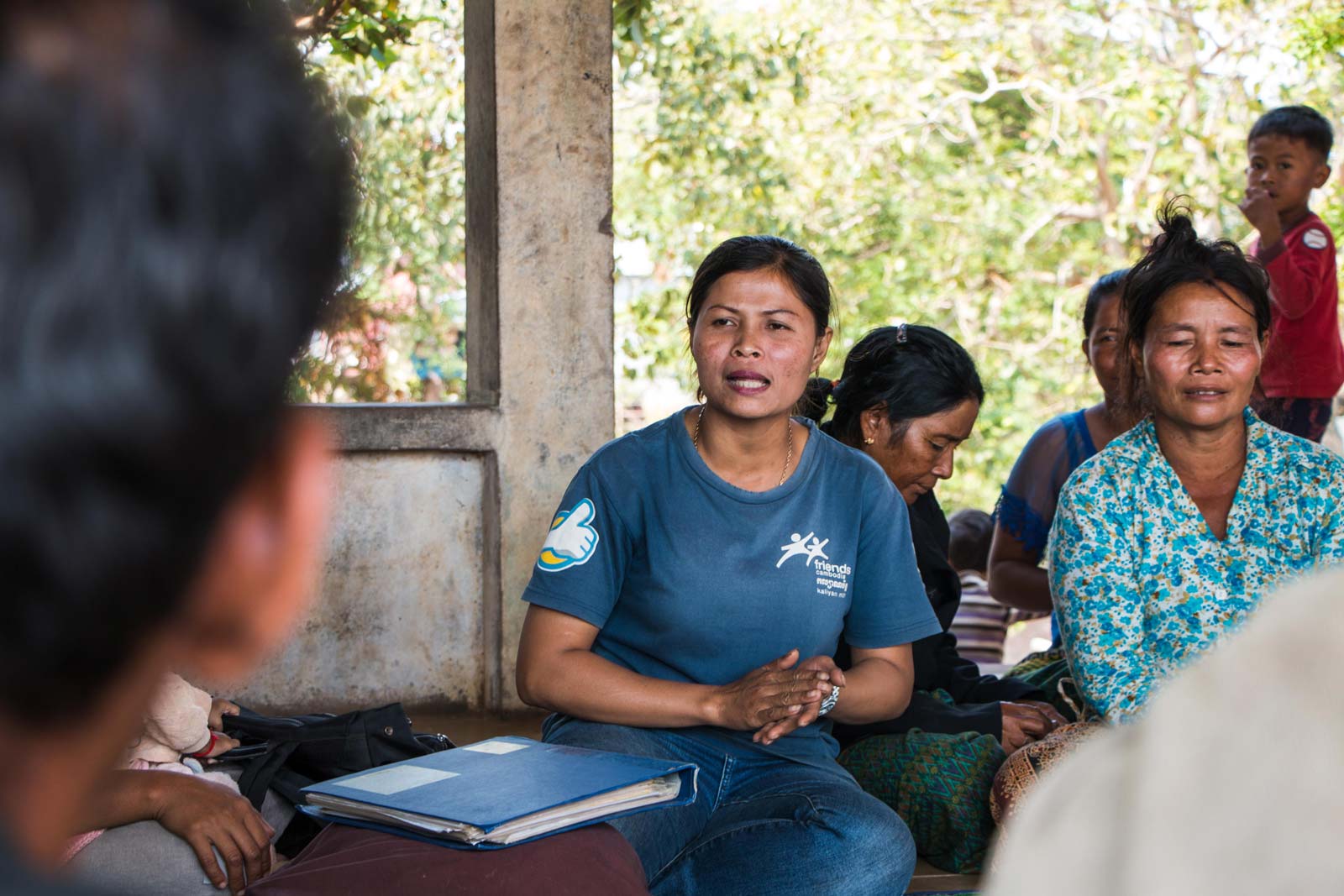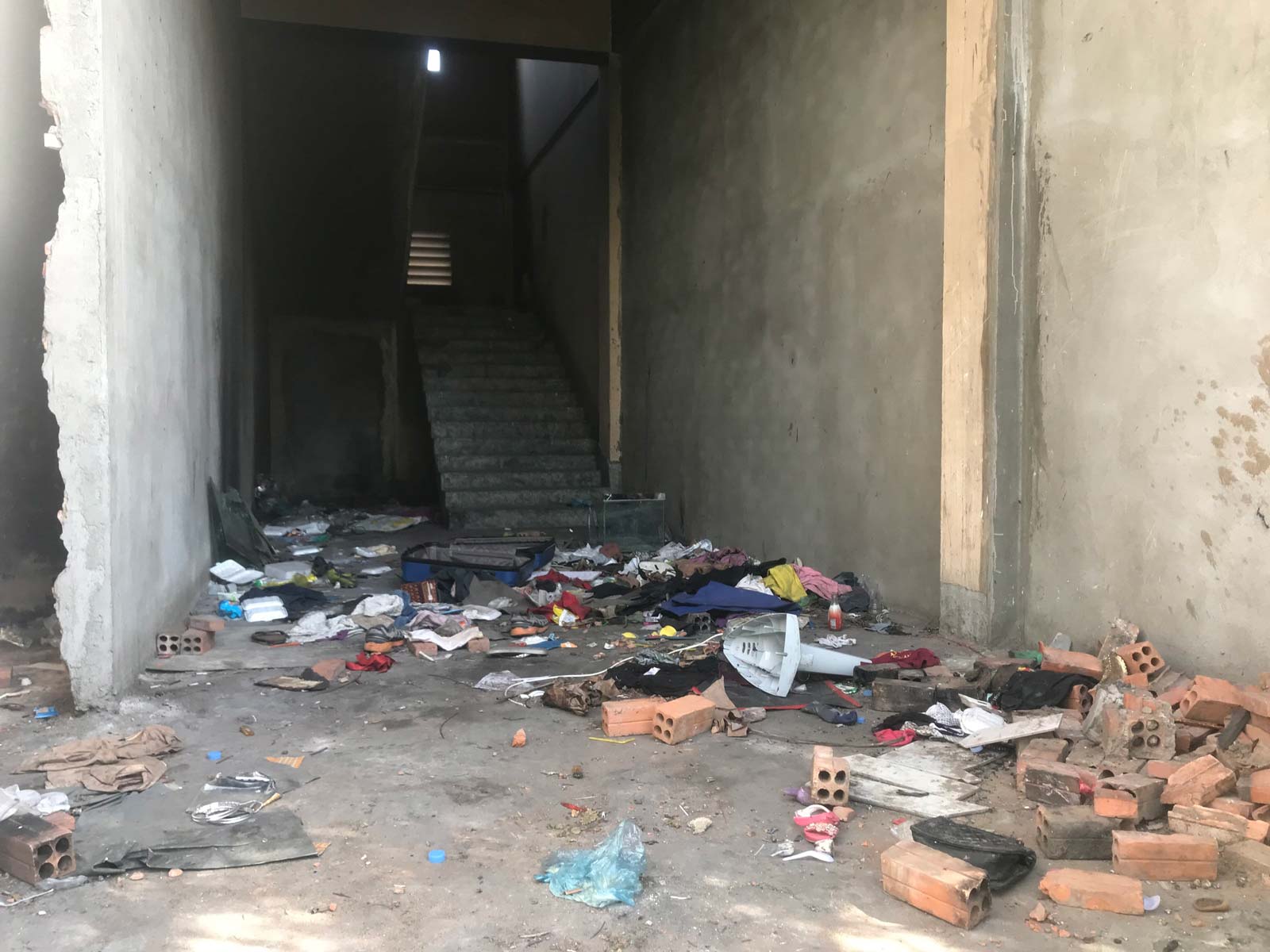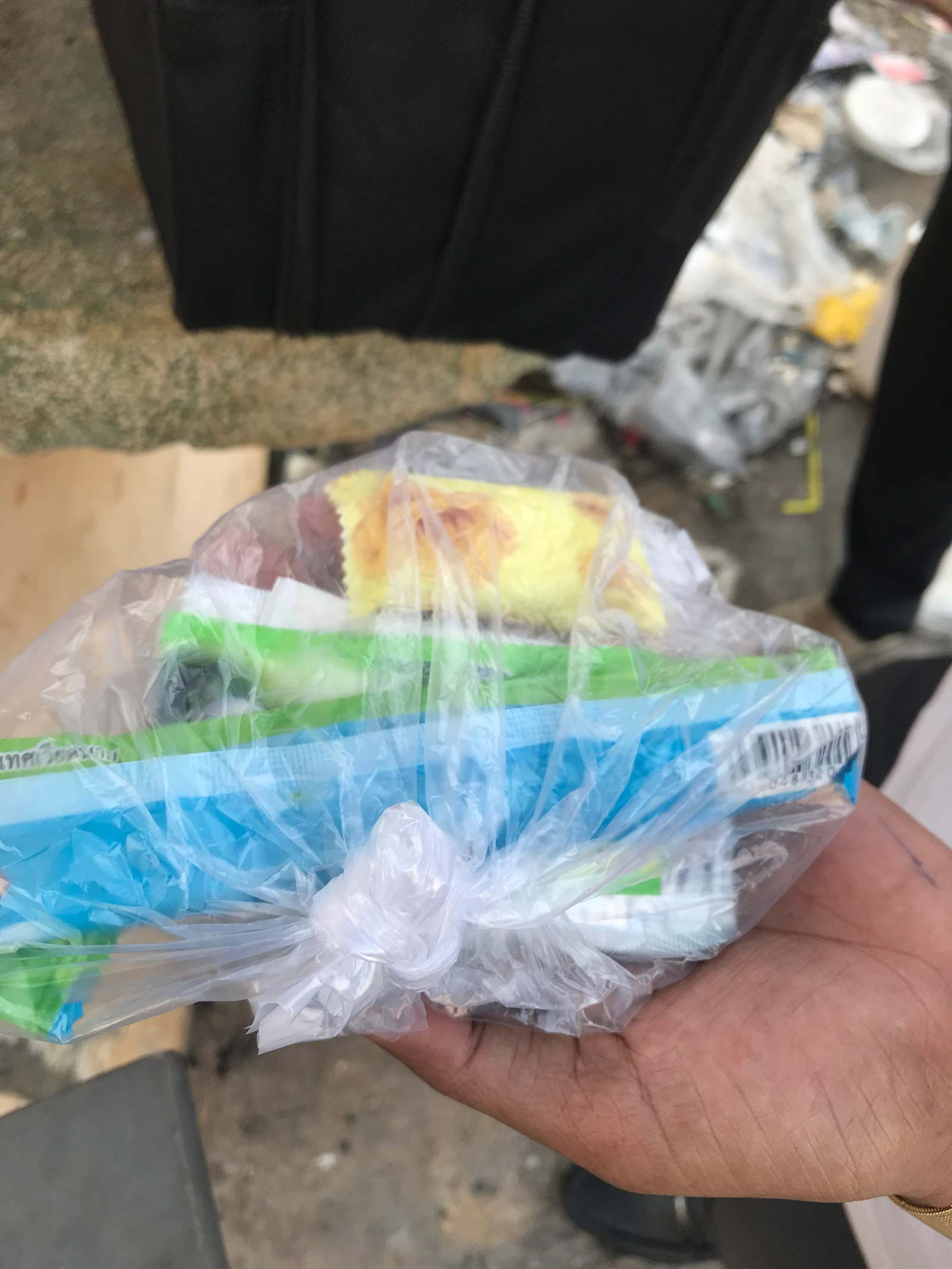Growing up in a rough neighbourhood rife with gambling and prostitution, peer pressure drove 31-year-old Oun* into using drugs while he was a teenager.
Addiction soon followed, leading to him quitting school during his third year of junior high. Later, as his strained relations with his family neared breaking point, he ran away from home. It was then he realised he had hit rock bottom.
“I used them [drugs] a lot that I almost became mentally ill. When I was alone, I thought I was crazy. One day I ran away from home, and I finally woke up to myself,” Oun said.
When Oun’s family started to look down on him, he knew he had to make changes if he wanted things to be different.
“I knew that if I keep that up there would not be anyone willing to take me for work. No one would want to be around me. I knew I had to stop, and I was determined to change,” Oun added.
Now, almost two decades later, Oun is clean – and determined to use his experience to help young Cambodians deal with addiction. Through his work as an outreach officer with Mith Samlanh, Oun helps children and youth from marginalised families and communities, often at one of the organisation’s drop-in centres in the Toul Kork area of Phnom Penh.

Mith Samlanh is part of the Friends International organisation, which spans several countries in Southeast Asia, including Laos, Indonesia and Thailand. In 2017, Friends International provided support to 3,262 drug users in Cambodia.
Members of the Association of Southeast Asian Nations [ASEAN], a ten-country regional organisation, have been stepping up their fight to tackle drug issues since their promise of ‘Drug-Free ASEAN 2015’. The region is known for some of the harshest drug laws in the world. With the exceptions of Cambodia, Timor-Leste and the Philippines, other countries in Southeast Asia implement the death penalty for drug offences, making up around quarter of the about 32 states and territories in the world to do so.
Since 2016, Philippine President Rodrigo Duterte’s campaign against a spiralling drug trade has attracted international attention over extrajudicial killings of drugs crime suspects. Inspired by this controversial and deadly “war on drugs” upon the president’s diplomatic visit in late 2016, Cambodia started its own crackdown in early 2017.
Using far less deadly tactics than in the Philippines, the number of drug-related arrests in 2017 increased a massive 80% compared with previous years before the crackdown began – proof, perhaps, of the campaign’s impact. However, anti-drugs organisations have warned that Cambodia’s war on drugs can prevent at-risk community members from seeking the help they need, as some have gone into hiding, fearing arrest, and making it harder for health organisations and social workers to reach them.
“Those people have been using it for a long time, and they do not really want to stop. We have to do it step by step, and explain to them about the consequences”
Orn Chhany, Mith Samlanh/Friends International
A recent study by the international humanitarian group Good Neighbors Cambodia (GNC) and a local youth group, which was conducted in Phnom Penh and the provinces of Banteay Meanchey, Battambang, Kratie and Mondulkiri among 283 children aged 13-18, shows that 92% of respondents said they are aware of social problems surrounding drugs, with 80% claiming to have seen drug use and trafficking in their communities.
72% of the children also said they are worried about being introduced, persuaded or forced to use drugs by offenders, suggesting the twin scourges of drugs and crime are operating in tandem in Cambodia, as they do elsewhere.
Since its establishment in 1994, Mith Samlanh has been working with marginalised children and young adults as well as their families and communities. They help the affected people recover their normal life and enable them with opportunities to build their future.
Mith Samlanh’s drug programme is one of the few holistic approaches in Cambodia to help youth drug users achieve long-term sobriety, said the programme coordinator. It is one of the three organisations permitted by the Cambodian government to run needle and syringe exchanges. These exchange programmes are part of a set of prevention and risk reduction services that could help people recover from addiction and get back to their normal lives through detoxification and rehabilitation, social integration, vocational training and job placements.
“We cannot stop them completely right from the beginning,” said Orn Chhany, a psychology graduate and ChildSafe specialist at Mith Samlanh. “Those people have been using it for a long time, and they do not really want to stop. We have to do it step by step, and explain to them about the consequences.”

A primary aspect of their work is community outreach assessment. Drop-in centres allow beneficiaries to access support and services in a safe and clean environment.
People who struggle with addiction but who want to change their lifestyle would be passed to the treatment center, according to Channy, who said “If they voluntarily want to change and commit to it, we could help by referring them to our treatment center”.
“There is an overwhelming supply of drugs in Cambodia. That makes it easy to find drugs at a cheap price”
Khem Soley, Mith/Samlanh/Friends International
The drug rehabilitation center ‘Greenhouse’ provides both pharmacological and psychological support to drug-using children and youths. The eight-week programme was designed to help addicts overcome their dependence on drugs, and re-acquire necessary social skills to reintegrate with their families and society, according to Khem Soley, Saving Life programmes coordinator at Mith Samlanh.
“The program has been very successful. There is only about 5% dropout rate, mostly in the first or second week,” she said.
Upon being discharged from the programme, patients are monitored by Friends coordinators for another six months to try to prevent relapse.
“During community outreach, our peer agents would also do house visits on weekly and monthly basis, depending on patients,” said Soley.
Oun said that his own experience living with addiction helped him connect with the people struggling to overcome their own demons.
“I cannot pressure them into changing, but I have talked to countless people about what I have known,” he said. “If they are willing to change on their own, then we could help them.”
Parts of Southeast Asia make up the notorious ‘Golden Triangle’ drugs production region, a lawless zone where the borders of Laos, Myanmar, and Thailand meet the confluence of the Ruak and Mekong rivers.
In addition to the older tradition of growing opium poppies and heroin refining, the Triangle is now known for the mass production of amphetamine-type stimulants, such as ecstasy and ice, also known as crystal meth.
A common haunt for addicts on the outskirts of Phnom Penh. Photo: Thim Rachna

Largely supplied by the Golden Triangle, Cambodia is part of the regional drug market. Many Cambodian youths are arguably already prone to drug use due to poverty and lack of social welfare, a vulnerability made worse by the vast supply of narcotics coming from neighbouring countries.
“With such close distance to the production site, there is an overwhelming supply of drugs in Cambodia. That makes it easy to find drugs at a cheap price. They can spend around 10,000 riel (US$2.50) and can be used by up to three people,” Soley said.
The flood of drugs into the Kingdom adds another obstacle to community development, with formidable hurdles such as poverty and unemployment already in place.
For Friends International, education is key to combating the drugs scourge.
“We work with the National Authority for Combating Drugs,” said Soley. “But we mainly focusing on education and minimising the risks. We also work with vulnerable populations and educate them about the consequences before they can get involved.”
But for Oun, the fight against addiction is even more personal.
“I love what I’m doing, and I want Cambodian society to become ‘clean’ by helping people struggling with drug using,” he said. “If we can educate and support them in seeking help, then we consider it a success.”

This article has been researched and written in partnership with Friends International. Read more stories at here.



